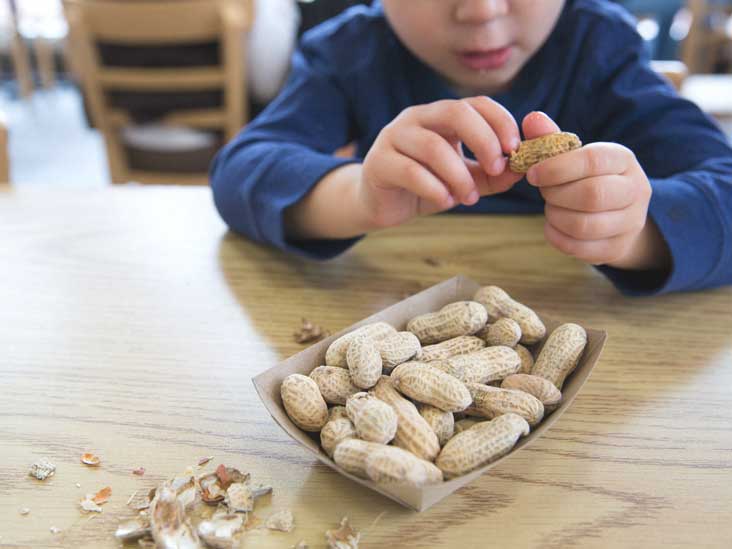How to Introduce Allergenic Foods to Your Child

CATEGORY: DIETETICS
How to Introduce Allergenic Foods to Your Child
A Dietitian’s Guide
According to ASCIA (the Australian Society of Clinical Immunology & Allergy), all infants should be given common allergy causing foods by 12 months of age (1 year).
Start introducing allergenic foods from around 6 months, but not before your baby is 4 months of age. A qualified paediatric dietitian and nutritionist can advise on introducing solids safely into your child’s diet.
“Research shows that giving your baby the common allergy causing foods before they are one year of age can greatly reduce the risk of them developing an allergy to that food. Delaying the introduction of the common allergy causing foods does not prevent food allergy.”
(Taken from “Nip allergies in the bub”, a website that has some great resources and information: Nip Allergies in the Bub – A Food Allergy Prevention Project (preventallergies.org.au)).
The most common food allergens in Australia are:
- Cow’s Milk Protein
- Soy
- Eggs
- Peanuts and tree nuts (including sesame seeds)
- Wheat and gluten
- Fish and shellfish
Under food labelling laws in Australia, these common allergens always have to be declared on food labels and will often appear in bold in the ingredient list. If you are unsure, ask your dietitian.
Some tips for introducing food allergens:
- Try any new food or allergen in the first half of the day, ideally after a nap so you can observe for any adverse reactions. Do not try any new allergens before the night-time sleep.
- Only introduce one common allergy causing food at each meal, so that the problem food can be easily identified if there is an allergic reaction.
- Keeping a food and symptom diary is a good idea!
- Give the food in an age-appropriate form such as well-cooked egg and smooth peanut butter/paste (not whole nuts or pieces). Start with a small amount (1/4 teaspoon) mixed into a puree which your baby has previously accepted. You could also try a small amount on your child’s lip and watch for tolerance.
- Only introduce 1 new allergen every 3 days before moving onto another one. Some reactions can be delayed, or only occur after repeated exposures to a food.
- If your baby has an allergic reaction, stop giving that food and seek medical advice from your doctor or call 13 HEALTH ( 13 43 25 84). If the reaction is severe, call triple zero (000) and ask for an ambulance or go to your nearest hospital emergency department.
- Do not introduce new food or allergens when you are far away from emergency services. In the rare case of a severe allergic reaction, you want to be able to reach the hospital as soon as possible.
Some food ideas for introducing allergens into your baby’s diet:
- Cow’s Milk: Some plain yoghurt (full fat, unsweetened plain) or smooth ricotta or grated cheese can be added to pureed vegetables or fruits.
- Egg and Soy: Hard-boiled egg yolk or some soft tofu (soy) mashed into pureed vegetables.
- Nuts and sesame: Mix a small amount of peanut flour or smooth peanut paste with baby cereal or fruit puree. If bub is a bit older, try other nut pastes and tahini or hummus.
- Flaked fish or steamed and minced shellfish can be added into pureed vegetables.
- For wheat, try couscous, bread fingers or offer pikelets for finger foods for an older baby.
An accredited dietitian can help
Unfortunately, there is no cure for allergies, however once an allergy is identified, it can be managed with the help of an allergist and a dietitian who will provide suitable dietary substitutions to ensure nutritional requirements are met.
Our dietitian at Alchemy in Motion is seeing patients at the Noosa clinic and can provide evidence-based advice.
Caren is very experienced in paediatric nutrition and dietetics, especially food allergies and intolerances (including cow’s milk protein allergy and eosinophilic esophagitis). Other areas of interest include faltering growth, and functional gastrointestinal disorders such as constipation and reflux. Working alongside lactation consultants, midwives and child health services, Caren can offer breastfeeding support, advice on appropriate formula choices, preterm infants, introducing solids and allergens, and monitoring baby’s growth and nutritional development.
How to Book:
You can book an appointment with our dietitian by going online to our booking page or alternatively you can call our gorgeous admin team and they can book an appointment at a time that suits you and baby.
An infant nutritionist and paediatric dietitian can help support babies, toddlers and children to grow and develop with the support of good nutrition.
For more information:


Leave a Comments
You must be logged in to post a comment.